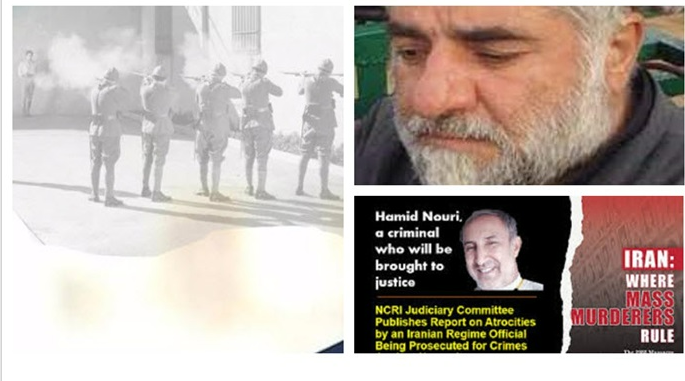
In a historic ruling with profound implications, the Svea Court of Appeal in Sweden delivered a monumental verdict in the trial of Hamid Noury, a former Iranian prison official.
The court found Noury, reportedly an assistant to the deputy prosecutor in an Iranian prison, guilty of participating in the 1988 massacre of political prisoners. This act, deemed a “serious crime against international law,” marks a pivotal moment in the quest for justice.
The verdict, pronounced on December 19, has ignited a complex political reaction. The Iranian regime, predictably, denounced the decision as a politically driven witch hunt. In a retaliatory and strategic move, Tehran hastily arranged the trial of Johan Floderus, a Swedish citizen, in Branch 26 of the Islamic Revolution Court, signaling its leverage in international negotiations. This maneuver gained significant attention in Western media, inadvertently amplifying the regime’s narrative.
The decision by the Swedish Court transcends the individual case of Hamid Noury. It is celebrated by the Iranian populace and human rights organizations worldwide, particularly because the Iranian regime has historically managed to secure the release of convicted or suspected terrorists.

The Noury trial establishes a crucial legal precedent, underlining that with political determination, substantial evidence, and solid legal frameworks, impunity for crimes against humanity can be challenged and overcome.
A significant aspect of this ruling is its affirmation of universal jurisdiction. This principle allows for the prosecution of crimes against humanity in any country, regardless of where or when they occurred. Given the Iranian regime’s consistent refusal to hold its officials accountable, this principle underscores a collective international responsibility to address grave human rights violations.
The conviction of an Iranian official in a Swedish court sends a potent message worldwide: the global community will no longer tolerate impunity for such egregious crimes. This shift challenges traditional views on diplomatic immunity and highlights the shared responsibility of nations to confront and rectify human rights abuses.
Since 2016, Mrs. Maryam Rajavi has spearheaded a national and international campaign seeking justice for the 1988 massacre victims. This movement significantly influenced Iran’s 2017 presidential elections, leading to a notable defeat for Ebrahim Raisi, despite covert support from the Supreme Leader.

The regime, feeling threatened, responded with a sophisticated domestic and international plan to thwart this movement, with the alleged luring of Hamid Noury to Sweden as a strategic component.
The trial, spanning over two years with 113 court sessions, witnessed the unraveling of Tehran’s plots against the Iranian Resistance’s involvement in the case. Despite efforts to obstruct, compelling testimonies from survivors, substantial evidence, and the relentless work of legal representatives prevailed, marking a significant victory against the regime’s attempts to obscure the truth.
The Noury verdict is not an end but a catalyst for further legal action. It encourages survivors and human rights groups worldwide to initiate investigations and prosecutions, following Sweden’s legislative example.

This opportunity must be seized by the international community to ensure justice for the 1988 massacre victims and to set a precedent for holding perpetrators of similar atrocities accountable.
As authoritarian regimes have historically used human rights violations merely as political leverage, the Noury case, combined with the principle of universal jurisdiction, heralds a new era in pursuing accountability for senior officials involved in grave human rights abuses. This landmark ruling is a beacon of hope for victims and a stern warning to perpetrators that justice, albeit delayed, will be served.

MEK Iran (follow us on Twitter and Facebook), Maryam Rajavi’s on her site, Twitter & Facebook, NCRI (Twitter & Facebook), and People’s Mojahedin Organization of Iran – MEK IRAN – YouTu
